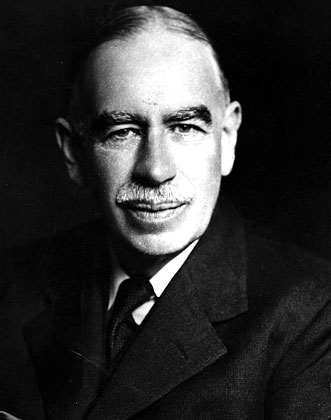Vienna city hall (left) and Creditanstalt (above), venues for the prize ceremonies.
[from our Krämerzeitung Special Society Correspondent, Vienna, May 12]
The prestigious Heinrich Brüning and Andrew Mellon Memorial Prizes, created by the 'Creditanstalt', were awarded last night in a gala event attended by many notable celebrities. The date commemorates the historic May 11, 1931 resolution of the Creditanstalt Bank, which set off the worldwide chain of bank failures and currency runs that really made the Great Depression the profound event we cherish today.
The Prizes were awarded by Lithuania's President Dalia Grybauskaitė in the name of all European creditor states and their banks (shown here receiving the Charlemagne Prize last week in Aachen).
President Grybauskaitė praised the recipients for their tireless efforts to impose debt-deflation on deserving economies, and said the sacrifices would be amply rewarded in the long run when we are all dead. (Gadfly socialite historian Niall Ferguson was overheard remarking that this was easy for her to say, Madame President being childless and unmarried. Since his recent experience of eating crow, however, he wisely refrained from speculating about her sexual orientation. He could not restrain himself from remarking, though, that if only more British tourists had bought Hitler's artistic postcards while he was peddling them on these very Viennese streets, the 20th century would have turned out quite differently, so the British have only themselves to blame for WWII.)
| Historian-about-town Niall Ferguson was decked out for the occasion but exercised remarkable restraint in speculating about participants' sexual orientations. |
European Commission Vice-President Olli Rehn was then awarded the Heinrich Brüning Memorial Prize for Self-Defeating Macroeconomic Stabilization Policy (aka Austerity). In accepting the award, VP Rehn stated that he could now see "light at the end of the debt-deflation tunnel" once essential "structural reforms" were finally implemented by the ailing countries.

Olli Rehn seeing "light at the end of the debt-deflation tunnel" once France liberalizes advertising for veterinarians and Italy extends shop opening hours (Der Spiegel 20/2013).
The joint award of the Andrew Mellon “Liquidate labor, liquidate stocks, liquidate farmers, liquidate real estate” Memorial Prize for the Expeditious Resolution of Banks (aka Bank Runs) to Finance Ministers Wolfgang Schäuble and Jeroen Dijsselbloem was a source of considerable merriment. IMF Director Christine Lagarde had to engage in all-night, one-on-one negotiations with the two recipients (reportedly including games of hopscotch and pick-up-sticks) to strong-arm them into reaching a sharing agreement that was a precondition for the award. The troika announced that Schäuble would receive 10.9%, Dijsselbloem 6.9% of anything left of the One Million 'Cypriot Euro' prize money after the Central Bank of Cyprus and the ECB take their cut for 'widows and orphans.'

Madame Lagarde in tense one-on-one, all-night negotiations with Jeroen Dijsselbloem (left) and Wolfgang Schäuble (right). Madame Lagarde's press secretary hastened to add that the IMF Director had neither smacked Dijsselbloem in the eye nor kowtowed to Schäuble to reach the agreement.
| Dijsselbloem and Schäuble later showed themselves to be "a heart and a soul." |
The closing ceremony of the 'Creditanstalt' Memorial Prize Awards received an enthusiastic standing ovation from the international states-persons in the audience.
Runner-up candidates put on a brave face to hide their disappointment.
After the formalities were over the distinguished audience eagerly disappeared into the famed Vienna nightlife.













.jpg)
